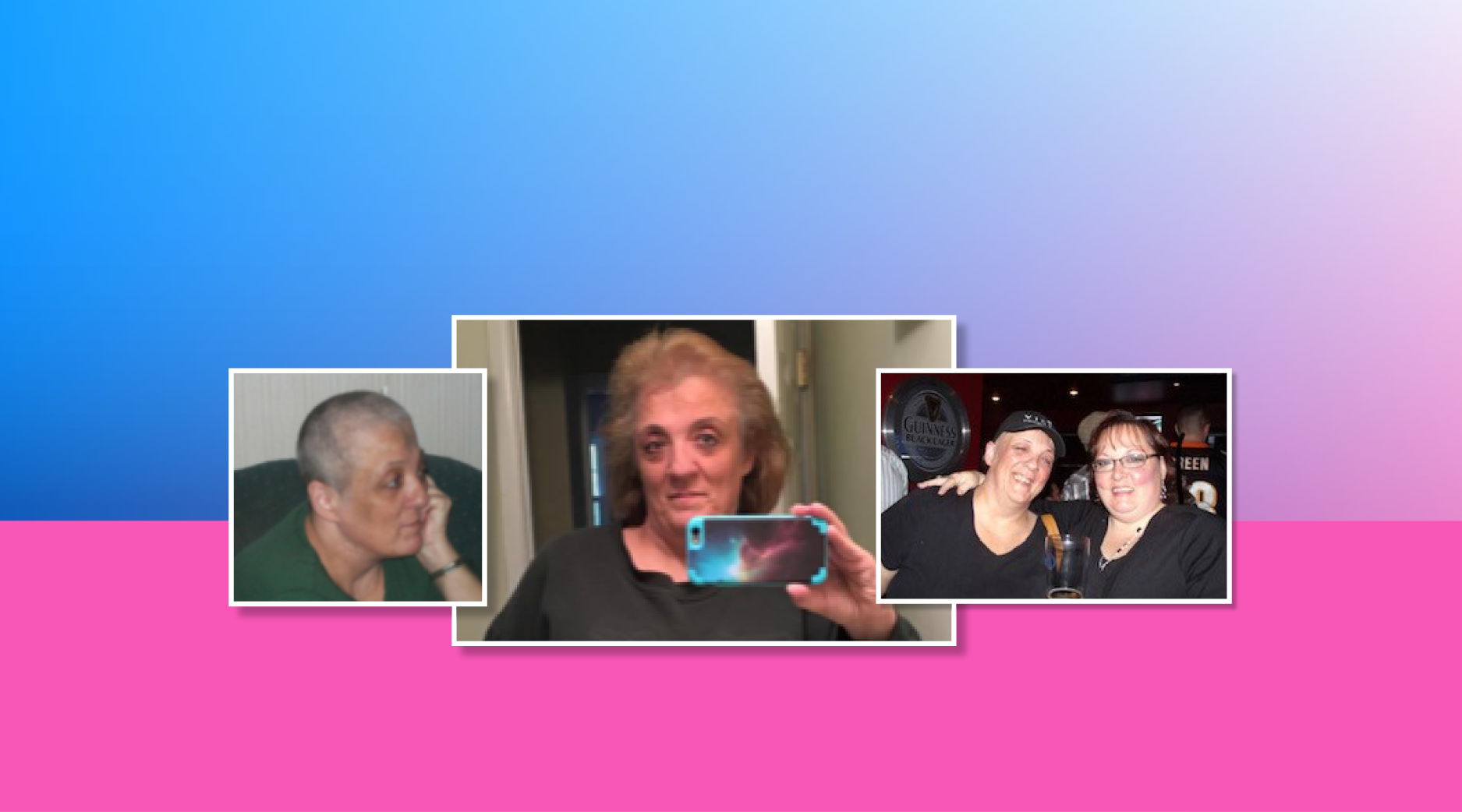By Theresa Mascibroda, Scheduler, TeamHealth Northeast Group
October is Breast Cancer Awareness Month, established in 1985 to heighten awareness and education around breast cancer and early detection. In honor of Breast Cancer Awareness Month 2021, we’re sharing a breast cancer survivor story from Theresa Mascibroda, Scheduler, TeamHealth Northeast Group.
Theresa’s Survivor Story
In May of 2012, I was diagnosed with stage two breast cancer. When my results came back positive, I was in total shock and denial. I’d had no symptoms, and the cancer was only caught by my general practitioner insisting on me having an annual screening mammogram. I had a family history of cancer – I lost one aunt to breast cancer, and have one aunt who is a survivor and a cousin who is also a survivor. But, I didn’t think I would ever experience it. Being a single mom with a 15-year-old-son, I was scared.
On June 27, 2012, I had a lumpectomy on my left breast. Then, I had ten radiation treatments in July and four rounds of chemo in late fall. By far, the hardest part of chemotherapy treatments was losing my hair. My nurse advised me to shave it early because it would fall out – and it did! Huge clumps falling brought me to tears. It was a difficult time, but I decided to shave it myself. I wore baseball caps until my hair grew back in early spring; with support from my friends and colleagues, the baseball cap became part of my everyday dress.
Finding Support in Friends and Family
I am an independent person by nature. But when I was diagnosed, I was uplifted by so many people – those I was close to and some I hadn’t seen in many years. I was self-conscious about my appearance and it was difficult, but I was able to get out and see friends, go to church and more with the support of everyone from my pastor to previous classmates.
As I was going through treatment, my cousin’s wife was also diagnosed with breast cancer. We were there for each other, and it was powerful to have that shared experience. My younger sister also supported me when I had surgery, took time off from work to take me to my treatments and helped me get through it all. My son, Domonic, was and is my rock.
I also received so much support from my coworkers and team. While in treatment, I had to take some leave to heal. Even when I returned, I never felt like I couldn’t ask for help from my team. My team supported me to take breaks when I needed them. Now being with this team and part of TeamHealth for 26 years, I’m so thankful for how well we work together and care for each other inside and outside of work. The support I received from my colleagues, family and friends was vital to me.
Advice to Others
When I was diagnosed, I went through every emotion – I cried, I was angry, I was sad. But now, I’m stronger for it. That’s why the one piece of advice I’d give is, “Don’t give up.” When you’re recently diagnosed, there can be so much fear. Not only of cancer itself but the impact on life. There are financial considerations, work changes and more. These fears are valid, but don’t give up.
I also always encourage women to have their annual mammograms. When I was diagnosed, I was busy raising my son and working. I just didn’t think a mammogram was necessary for me. That mammogram, though, saved my life. I can’t stress enough the importance of getting mammograms done, and I urge both of my sisters to get them done.
Today, I am nine years cancer-free! I appreciate every day given to me and continue to urge everyone to get their screenings done.
Don’t give up.” – Theresa Mascibroda
Breast Cancer Awareness Month 2021
Current guidelines suggest that women 45 years or older should have annual screening mammograms. However, women younger than 45 with a family history of breast cancer or certain genetic markers should speak to their doctor about when to begin annual mammograms. If you have any symptoms, such as change in the size or the shape of the breast, pain in any area of the breast, nipple discharge other than breast milk or a new lump in the breast or underarm, please seek medical attention.
A few moments can save your life – please ask your doctor about your annual mammogram. For more stories from TeamHealth, subscribe to our blog.
